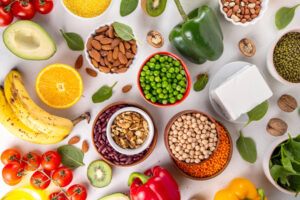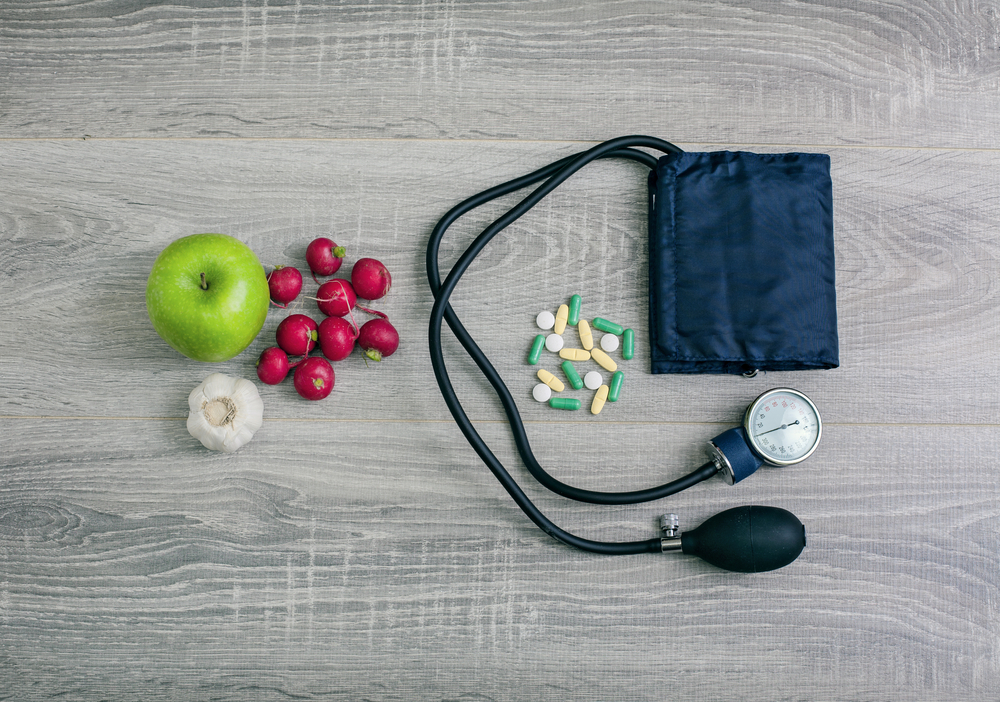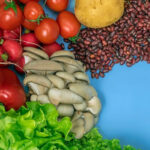1. Introduction:
Welcome to our guide on optimizing your heart health through a 7-day diet plan designed to reduce blood pressure sustainably. In this blog, we will delve into the importance of nutrition in managing blood pressure levels and provide you with a comprehensive meal plan for a week.
2. Understanding Blood Pressure:
Before we dive into dietary strategies, let’s briefly discuss what blood pressure is and why it matters. Blood pressure is the force of blood against the walls of your arteries as your heart pumps it around your body.
High blood pressure, also known as hypertension, can lead to serious health complications such as heart disease, stroke, and kidney problems.
3. Unlocking the Power of Nutrition: Essential Elements of the 7-Day Diet Plan for High Blood Pressure:

Welcome to our exploration of the transformative 7-day diet plan designed to combat high blood pressure through the power of nutrition. In this blog, we will delve into the key principles that underpin this plan, guiding you through a journey of healing and rejuvenation for your cardiovascular health.
1. Embrace Whole Foods:
The foundation of the 7-day diet plan lies in the embrace of whole, unprocessed foods. These nutrient-dense gems from nature provide our bodies with essential vitamins, minerals, and antioxidants that promote optimal health and vitality.
By filling your plate with colorful fruits, vibrant vegetables, hearty whole grains, and lean proteins, you nourish your body from the inside out, supporting your cardiovascular system and lowering blood pressure naturally.
2. Prioritize Plant-Based Nutrition:
Plants are nature’s pharmacy, offering a wealth of health-promoting compounds that can work wonders for our hearts. Incorporating a variety of plant-based foods into your diet, such as fruits, vegetables, legumes, nuts, and seeds, can help lower blood pressure, reduce inflammation, and improve overall cardiovascular function.
Plant-based nutrition is not only good for your health but also for the planet, making it a win-win choice for both you and the environment.
3. Mindful Sodium Reduction:
Sodium, often found in abundance in processed and packaged foods, can wreak havoc on our blood pressure levels if consumed in excess. The 7-day diet plan emphasizes mindful sodium reduction by choosing whole, fresh ingredients and minimizing the use of salt in cooking.
By opting for herbs, spices, and other flavor-enhancing ingredients, you can enjoy delicious meals without compromising your cardiovascular health.
4. Harness the Power of Potassium:
Potassium is a vital mineral that plays a crucial role in regulating blood pressure and supporting heart health. Many fruits and vegetables, such as bananas, spinach, sweet potatoes, and avocados, are rich sources of potassium and should be included in abundance in your diet.
By harnessing the power of potassium-rich foods, you can help counteract the effects of sodium and promote a healthy balance within your body.
5. Stay Hydrated with Water:
Proper hydration is essential for maintaining healthy blood pressure levels and supporting overall well-being. Drinking an adequate amount of water throughout the day helps flush out toxins, regulate blood flow, and keep your cardiovascular system running smoothly.
Aim to drink at least 8-10 glasses of water per day, and consider incorporating hydrating foods such as cucumbers, watermelon, and citrus fruits into your diet for an extra boost of hydration.
6. Mindful Portion Control:
In our modern society, where oversized portions and super-sized meals have become the norm, practicing mindful portion control is more important than ever. The 7-day diet plan encourages listening to your body’s hunger and fullness cues, eating slowly, and savoring each bite.
By practicing mindful eating and paying attention to portion sizes, you can prevent overeating, maintain a healthy weight, and keep your blood pressure in check.
7. Cultivate a Positive Relationship with Food:
Last but not least, the key to success on the 7-day diet plan lies in cultivating a positive relationship with food. Instead of viewing food as the enemy or restricting yourself with rigid rules and regulations, approach eating as an opportunity to nourish and fuel your body.
Choose foods that make you feel good, both physically and emotionally, and savor each meal as a celebration of health and vitality.
In the end, by embracing these key principles of the 7-day diet plan for high blood pressure, you can unlock the transformative power of nutrition and take proactive steps towards improving your cardiovascular health. Remember, small changes can lead to big results, so start today and embark on your journey towards a healthier, happier you.
4. The Importance of Nutrition in Lowering Blood Pressure:

Nutrition plays a crucial role in managing blood pressure levels. Certain foods can either help lower blood pressure or contribute to its elevation.
Key nutrients such as potassium, magnesium, and fiber have been shown to have beneficial effects on blood pressure regulation. By incorporating these nutrients into your diet, you can support your cardiovascular health and reduce your risk of hypertension.
5. The 7-Day Diet Plan:
Now, let’s explore the 7-day diet plan designed to optimize your heart health and reduce blood pressure.
Day 1: Focus on Whole Foods
Start your week by focusing on whole, unprocessed foods. Fill your plate with plenty of fruits, vegetables, whole grains, and lean proteins. These foods are rich in essential nutrients and fiber, which can help lower blood pressure by improving heart health and promoting overall wellness.
Day 2: Incorporate Healthy Fats
On day 2, incorporate healthy fats into your diet such as avocados, nuts, seeds, and olive oil. These fats are known to have a positive impact on heart health and can help lower blood pressure when consumed in moderation. Avoid trans fats and limit saturated fats, which can contribute to high blood pressure and heart disease.
Day 3: Increase Potassium Intake:
Potassium plays a key role in blood pressure regulation by helping to balance the effects of sodium in the body. Increase your potassium intake by including potassium-rich foods such as bananas, sweet potatoes, spinach, and beans in your meals. These foods can help lower blood pressure and reduce the risk of hypertension-related complications.
Day 4: Reduce Sodium Consumption:
Excess sodium intake is a major contributor to high blood pressure. On day 4, focus on reducing your sodium consumption by avoiding processed and packaged foods, which are often high in sodium. Instead, season your meals with herbs, spices, and lemon juice for flavor without the added salt.
Day 5: Embrace Plant-Based Proteins
Plant-based proteins such as beans, lentils, tofu, and quinoa are not only heart-healthy but also beneficial for lowering blood pressure. Incorporate these protein sources into your meals to promote satiety and support cardiovascular health. Aim to reduce your intake of red meat and processed meats, which have been linked to hypertension.
Day 6: Hydrate with Water and Herbal Teas
Staying hydrated is essential for maintaining healthy blood pressure levels. Drink plenty of water throughout the day and consider incorporating herbal teas such as hibiscus tea, which has been shown to have blood pressure-lowering effects.
Limit your intake of sugary beverages and caffeinated drinks, which can contribute to dehydration and elevate blood pressure.
Day 7: Monitor Portion Sizes
On the final day of the plan, focus on portion control to prevent overeating and promote weight management. Pay attention to serving sizes and listen to your body’s hunger and fullness cues. Eating smaller, more frequent meals can help prevent spikes in blood pressure and support overall heart health.
6. Foods to Avoid for Better Heart Health:
In our journey towards optimizing heart health and reducing blood pressure, it’s crucial to be mindful of the foods we consume. Certain foods can have detrimental effects on our cardiovascular system, contributing to high blood pressure and increasing the risk of heart disease. Let’s explore some common culprits that should be avoided:
1. Salt:
Salt, or sodium chloride, is a staple ingredient in many dishes. However, excessive salt intake can lead to fluid retention and high blood pressure. The American Heart Association recommends limiting sodium intake to no more than 2,300 milligrams per day, with an ideal limit of 1,500 milligrams per day for most adults.
To reduce your salt intake, avoid adding extra salt to your meals and be cautious of processed and packaged foods, which often contain high levels of sodium.
2. Bologna, Salami, and Other Meats:
Processed meats like bologna, salami, and hot dogs are not only high in sodium but also contain unhealthy fats and additives that can harm your heart. These meats are often cured, smoked, or preserved with chemicals, which can increase the risk of heart disease and other health issues.
Instead of processed meats, opt for lean proteins such as chicken, fish, tofu, and legumes, which are lower in sodium and healthier for your heart.
3. Canned Vegetables:
While canned vegetables may seem like a convenient option, they often contain added salt and preservatives to prolong shelf life. Excess sodium in canned vegetables can contribute to high blood pressure and other cardiovascular problems.
Whenever possible, choose fresh or frozen vegetables over canned varieties. If you do opt for canned vegetables, look for low-sodium or no-salt-added options and rinse them thoroughly before consuming to reduce sodium content.
4. Sugar:
Excessive sugar consumption has been linked to various health issues, including obesity, diabetes, and heart disease. Consuming too much sugar can lead to weight gain and insulin resistance, both of which are risk factors for high blood pressure.
Be mindful of hidden sugars in processed foods such as sugary beverages, desserts, and snacks. Instead, satisfy your sweet tooth with natural sources of sweetness like fruits or opt for sugar-free alternatives.
5. Alcohol:
While moderate alcohol consumption may have some cardiovascular benefits, excessive drinking can have serious implications for heart health. Alcohol can raise blood pressure, contribute to weight gain, and increase the risk of heart disease and stroke.
To promote heart health, limit alcohol intake to no more than one drink per day for women and two drinks per day for men, as recommended by the American Heart Association.
6. Caffeine and Energy Drinks:
Caffeine is a stimulant found in coffee, tea, energy drinks, and certain medications. While moderate caffeine consumption is generally safe for most people, excessive intake can lead to increased heart rate, palpitations, and elevated blood pressure.
Energy drinks, in particular, can contain high levels of caffeine and sugar, posing additional risks to heart health. Limit your caffeine intake and opt for decaffeinated beverages or herbal teas for a heart-healthy alternative.
By being mindful of the foods we consume and avoiding these common offenders, we can take proactive steps towards improving our heart health and reducing the risk of high blood pressure and heart disease.
Remember to focus on a balanced diet rich in fruits, vegetables, whole grains, and lean proteins, and consult with a healthcare professional for personalized dietary recommendations tailored to your individual needs and preferences.
7. Understanding Health Risks: The Importance of Optimizing Your Heart Health
In our quest for vitality and longevity, it’s crucial to understand the health risks associated with neglecting our cardiovascular well-being. High blood pressure, also known as hypertension, is a silent killer that can wreak havoc on our bodies if left unchecked.
This condition puts undue strain on our heart and blood vessels, increasing the risk of heart disease, stroke, and other serious health complications.When our blood pressure remains consistently elevated, it can damage the delicate tissues lining our arteries, leading to atherosclerosis – a condition characterized by the buildup of plaque.
Over time, this plaque can narrow and harden our arteries, restricting blood flow to vital organs such as the heart and brain. This increases the likelihood of heart attacks, strokes, and other life-threatening events.
Furthermore, high blood pressure can place excessive strain on our heart muscle, causing it to thicken and become less efficient at pumping blood. This can lead to heart failure – a condition in which the heart is unable to pump enough blood to meet the body’s needs.
Heart failure can result in symptoms such as fatigue, shortness of breath, and swelling in the legs, and can significantly impact our quality of life.In addition to its direct effects on the cardiovascular system, high blood pressure can also contribute to other health issues throughout the body.
It can damage the kidneys, leading to kidney disease and even kidney failure. It can also affect the eyes, increasing the risk of vision problems and blindness. Furthermore, hypertension is closely linked to metabolic disorders such as diabetes and obesity, creating a vicious cycle of poor health outcomes.
The good news is that high blood pressure is largely preventable and manageable through lifestyle modifications such as diet, exercise, and stress management. By optimizing our heart health through a 7-day diet plan for sustainable blood pressure reduction, we can take proactive steps towards safeguarding our cardiovascular well-being and enjoying a longer, healthier life.
8. Final thought:
In the end, optimizing your heart health and reducing blood pressure levels requires a holistic approach that includes regular physical activity, stress management, and, most importantly, a healthy diet.
By following this 7-day diet plan and incorporating key nutrients such as potassium, magnesium, and fiber into your meals, you can take proactive steps towards improving your cardiovascular health and enjoying a longer, healthier life.
Remember to consult with a healthcare professional before making any significant changes to your diet or lifestyle, especially if you have underlying health conditions or are taking medication for high blood pressure.





